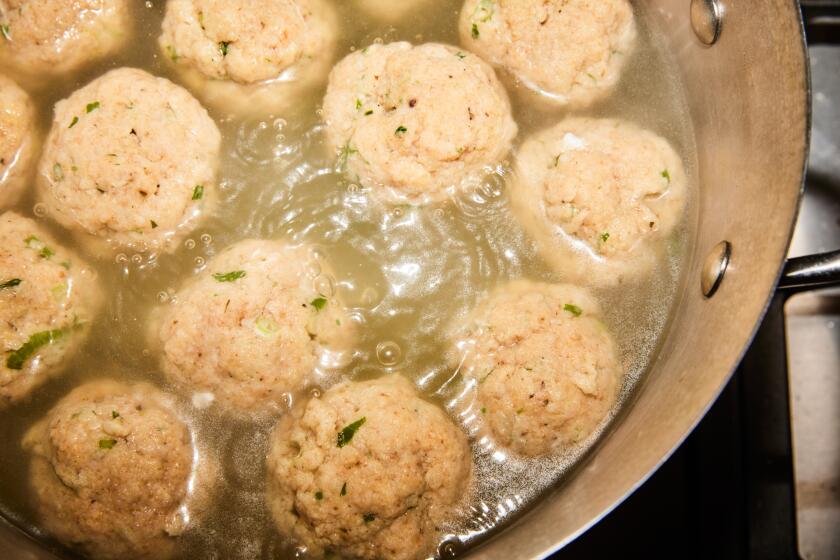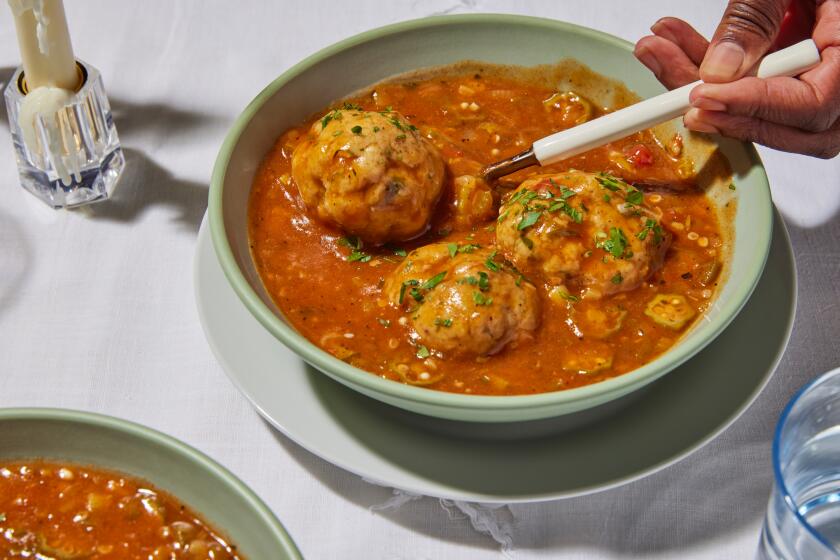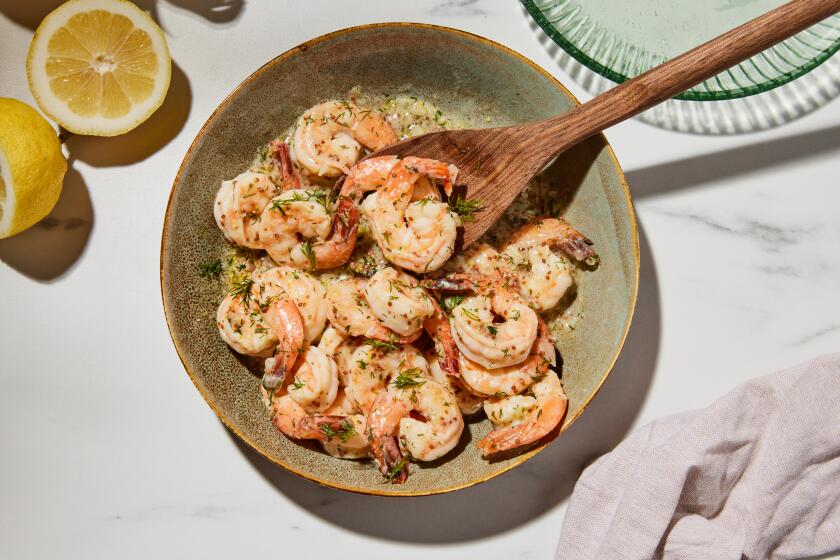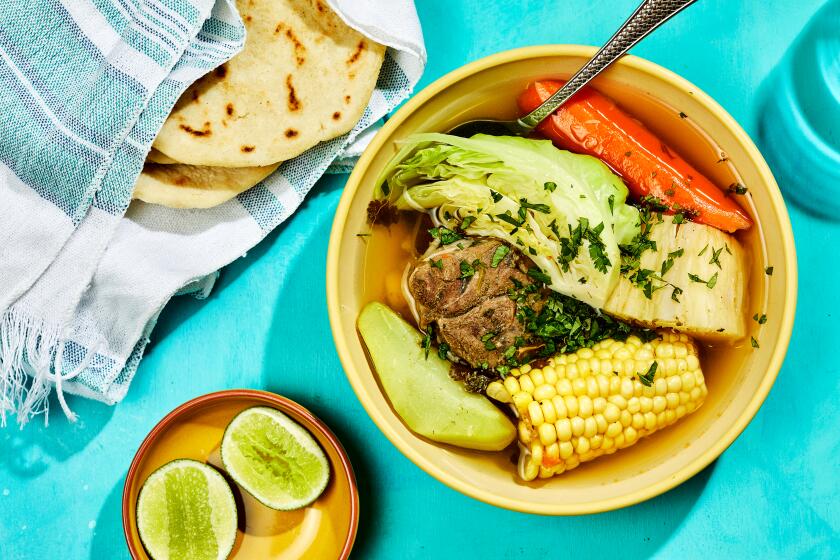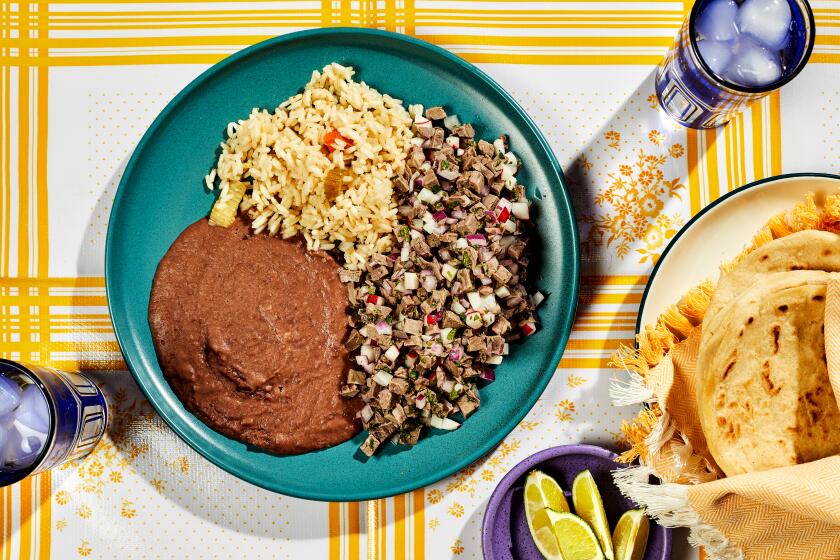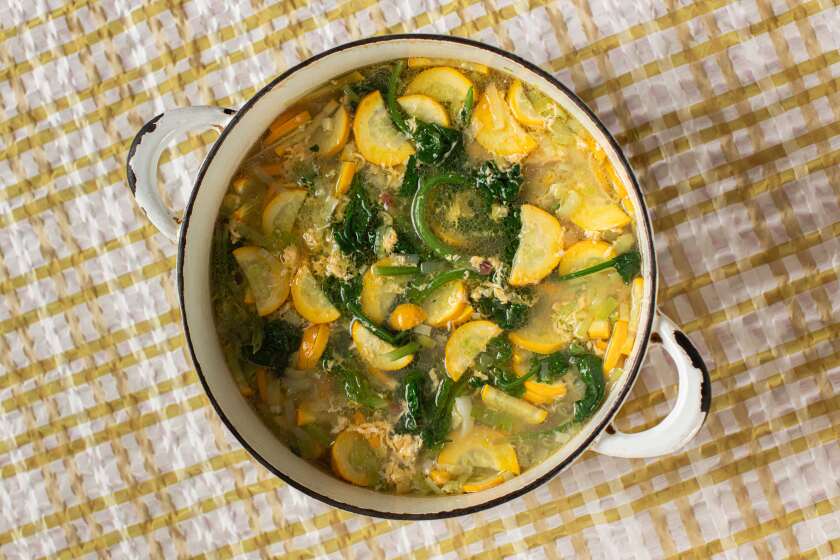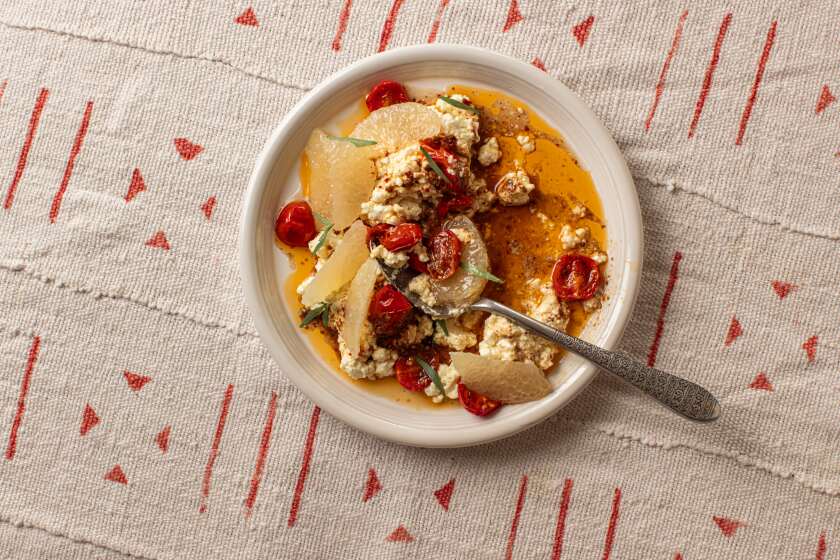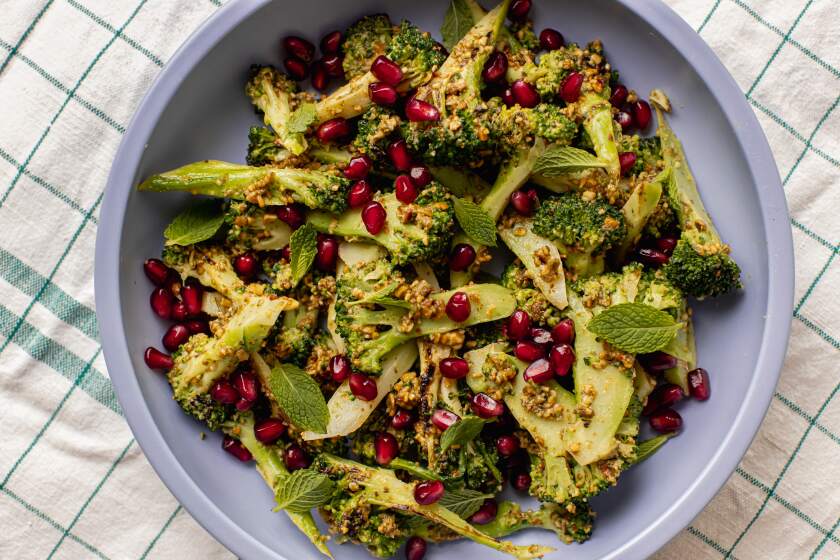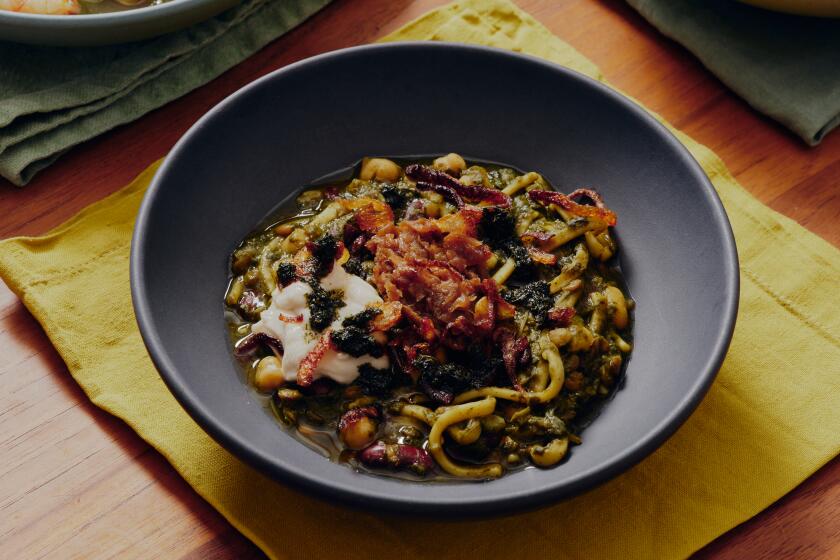Burgundy bulgur with blueberries and orange blossom water
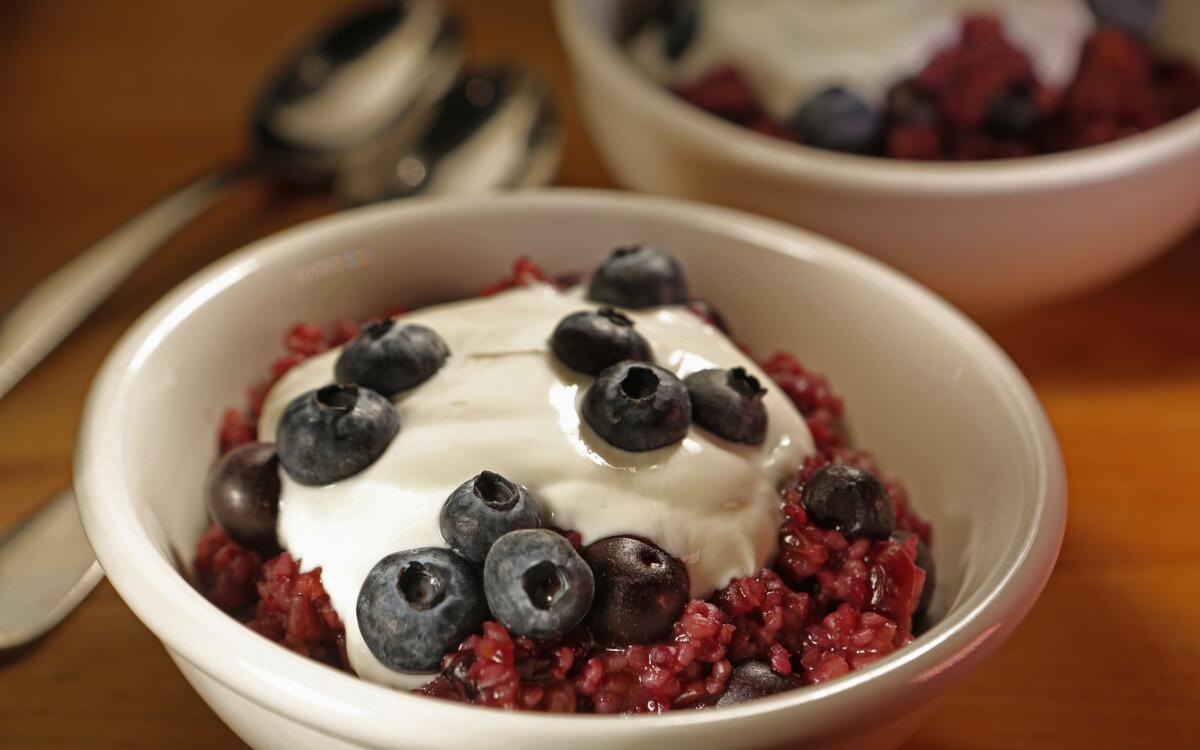
We all want to eat better, and most of us would love to have more meals with healthful and flavorful whole grains on our table. Yet, as a cookbook author specializing in them, whenever I ask during talks, “Did you cook some whole grains this week?” few hands go up in the room. And, as further prodding reveals, time or the lack of it seems to be the biggest hurdle.
It takes little to speed up your grain game. I spent the first part of my career working long and late hours as a news agency journalist. Still, whole grains were always on my table, for breakfast, lunch, dinner — and even for dessert. Here are five easy tricks:
1. Always have a few quick-cooking whole grains on hand. Today you can find many varieties, often gluten-free, on store shelves that can cook in 10 to 20 minutes, perfect for busy weeknights. This includes quinoa and also amaranth, buckwheat, millet and polenta or cornmeal. Not to forget farro (emmer wheat), trendy freekeh (toasted green wheat) and bulgur — which is called ancient fast-food for a reason. Last but not least, there’s also whole-wheat couscous, which needs nothing but a brief steaming to become a nourishing player on your mealtime table.
2. Store grains in individual Mason jars. This allows you to see at a glance what’s on hand and quickly choose a grain for dinner. For added ease, keep your favorite quick-cooking grains on an open kitchen shelf.
3. Prepare a large pot of slower-cooking whole grains on the weekend for later use. These include whole-wheat berries, spelt, rye and whole-grain barley. Cooking these hearty grains ahead enables you to work them into meals easily on busy nights. You can keep cooked grains at the ready in the fridge for up to seven days, or freeze them in portion sizes to always have on hand. (Two cups of raw grains will typically yield about six cups of cooked grains.)
4. Cooked grains keep in the freezer for months. You can defrost them overnight in the fridge, then briefly reheat them for dinner with 1/4 inch of water. Or cook them, straight from the freezer, in the microwave. (One cup of frozen grains needs only 1 to 2 minutes on high to be ready to eat.)
5. Be sure to soak slow-cooking grains overnight and cook them well, until some of them split and their starchy centers show. Don’t undercook these chewy whole grains. Why? Because when nicely plumped and supple, the kernels are much more appealing to eat — unless you love a mighty good chew.
Suggestions? Toss a cup of cooked grains into any soup or use them as a base for a more nourishing salad. Warm grains with milk for a quick breakfast that you can top with fresh fruit. Make grain burgers by adding grated vegetables, cheese, herbs and spices. Or add some cooked grains to pancake batter for brunch. You’ll be surprised how creative you can become once you have cooked grains at the ready.
Make the bulgur: In a 3- to 4-quart saucepan, combine the pomegranate juice, bulgur, cranberries and vanilla, and bring to a boil, stirring once or twice. Reduce the heat to maintain a low simmer, cover and cook for 10 minutes. Stir in the blueberries and 1 teaspoon honey, and continue to simmer until the berries are warmed through, about 2 minutes. Gently stir in the zest and the orange blossom water. Taste and adjust with a bit more honey and orange blossom water if you like.
Meanwhile, add the Greek yogurt and 1 tablespoon honey to a small bowl and beat until smooth.
To finish, divide the bulgur among four bowls. Top each with 1/4 cup of yogurt and garnish with pomegranate seeds. Drizzle with more honey if you’d like. Serve warm.
Get our Cooking newsletter.
Your roundup of inspiring recipes and kitchen tricks.
You may occasionally receive promotional content from the Los Angeles Times.

